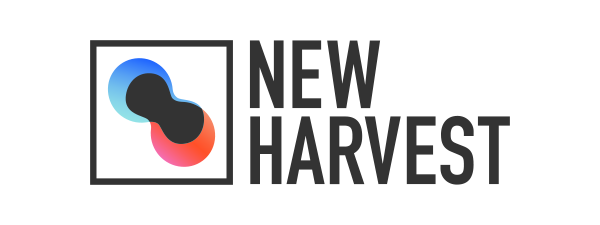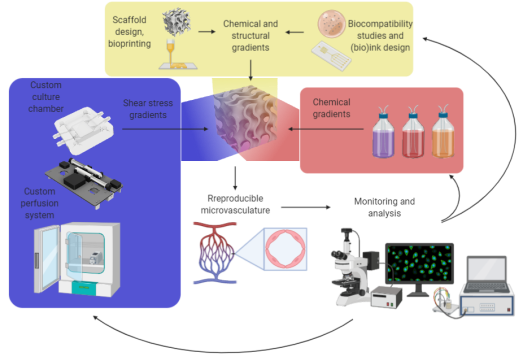A multimodal platform for gradient-based research and analysis of complex 3D structures
Reference number
Financing, programme, call
This project is funded by New Harvest

Partnering organisations
IRNAS d.o.o.

Coordination
Jernej Vajda (project manager), Boštjan Vihar (project supervisor), Uroš Maver (head of research group)
Duration
2021-2022
Back to the list
Objectives
This project proposes a novel experimental platform that allows precise and simultaneous adjustment of several 3D cell culture parameters and evaluates their individual and synergistic effects.
Through this platform, researchers will improve their tissue engineering capabilities and reduce the time and resources required to create functional in vitro models. The described concept will be realized by a gradient-based culture and monitoring platform, as shown in the graphical abstract. Instead of using a fixed setting (which may not be optimal) for each parameter, the introduction of parameter gradients creates a spectrum of them, with optimal conditions somewhere within.
A scaffold-based approach will be used for 3D cell culture, which will implement gradients through all three dimensions, each used for one of the following categories:
- intrinsic scaffold gradients – stiffness, porosity and initial cell density,
- perfusion gradients – flow rate and/or pulse shape/frequency,
- environmental composition – concentration of oxygen or other nutrients.
The experimental platform described above will be developed and validated within a 2-year framework, using microvascular tissues as a case study for tissue engineering of “large” but functional in vitro models. Sufficient nutrient and waste product transport is the main boundary condition for tissue size and metabolic activity.
Consequently, vascularization serves as an ideal model for testing this experimental setup, since the success of parameter optimization is reflected in the size of viable constructs.
